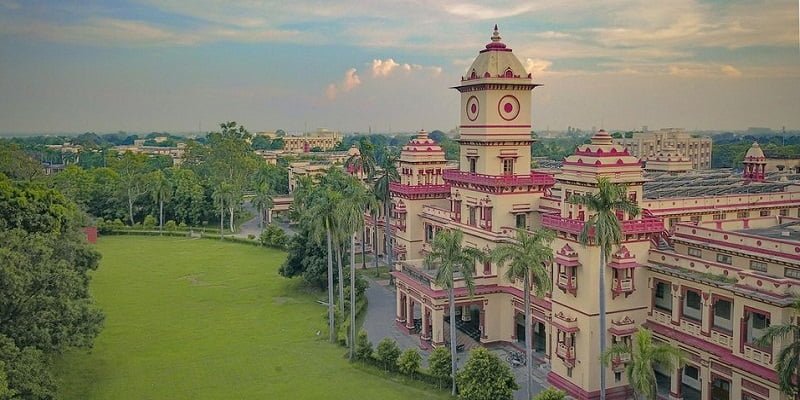Indian Institute of Technology Varanasi
History
The history of IIT Varanasi is deeply intertwined with the establishment of the Banaras Hindu University (BHU). In 1916, the Banaras Hindu University was founded by the visionary scholar and social reformer Pandit Madan Mohan Malaviya. Three years later, in 1919, the university established the Banaras Engineering College, which would later become the Indian Institute of Technology Varanasi.
Over the years, the institute has undergone several transformations and expansions, adapting to the changing needs of the nation and the evolving landscape of technology. In 2012, the institute was officially renamed the Indian Institute of Technology (Banaras Hindu University) Varanasi, or IIT-BHU, solidifying its position as a premier technical institution within the prestigious IIT network.
Academics
IIT Varanasi offers a wide range of academic programs, spanning undergraduate, postgraduate, and doctoral levels, across various engineering and scientific disciplines. The institute’s academic curriculum is designed to provide students with a solid foundation in theoretical concepts and practical applications, equipping them with the skills and knowledge required to excel in their chosen fields.
Some of the prominent academic programs offered at IIT-BHU include Bachelor of Technology (B.Tech.), Master of Technology (M.Tech.), and Doctor of Philosophy (Ph.D.) in various disciplines such as Computer Science and Engineering, Electrical Engineering, Mechanical Engineering, Civil Engineering, Chemical Engineering, and more. The institute also offers interdisciplinary programs, allowing students to explore diverse fields and develop a holistic understanding of their areas of study.
Research
IIT Varanasi is at the forefront of cutting-edge research and innovation, fostering a culture of intellectual curiosity and exploration. The institute’s state-of-the-art research facilities and laboratories are equipped with advanced instruments and technologies, enabling researchers to undertake groundbreaking projects and contribute to the advancement of knowledge in various domains.
The institute’s research activities span a wide range of areas, including energy and sustainability, nanotechnology, computer science and artificial intelligence, materials science, biotechnology, and environmental engineering. Many of the research projects undertaken at IIT-BHU are collaborative endeavors, involving industry partnerships, international collaborations, and interdisciplinary teams, ensuring a comprehensive and diverse approach to addressing complex challenges.
Campus
The IIT Varanasi campus is a vibrant and lively environment, nestled amidst the serene and spiritual surroundings of the holy city of Varanasi. The campus is a harmonious blend of modern infrastructure and ancient architectural marvels, reflecting the institute’s commitment to preserving its rich cultural heritage while embracing modernity.
The campus features state-of-the-art academic buildings, well-equipped laboratories, modern residential facilities for students and faculty, sports complexes, and recreational centers. Additionally, the campus is home to several cultural centers, libraries, and green spaces, providing an ideal environment for intellectual growth, personal development, and overall well-being.
Undergraduate Courses
The Indian Institute of Technology Varanasi offers a range of undergraduate courses, primarily the four-year Bachelor of Technology (B.Tech.) program. Students can choose from various engineering disciplines, including:
- Computer Science and Engineering
- Electrical Engineering
- Mechanical Engineering
- Civil Engineering
- Chemical Engineering
- Metallurgical Engineering
- Ceramic Engineering
- Mining Engineering
The undergraduate curriculum is designed to provide students with a strong foundation in theoretical and practical aspects of their chosen discipline, along with opportunities for hands-on experience through laboratories, projects, and industrial internships.
Postgraduate Courses
IIT Varanasi offers a diverse range of postgraduate courses, including the two-year Master of Technology (M.Tech.) program and the five-year Integrated Dual Degree (B.Tech. + M.Tech.) program. These programs are available in various specializations, such as:
- Computer Science and Engineering
- Electrical Engineering
- Mechanical Engineering
- Civil Engineering
- Chemical Engineering
- Biomedical Engineering
- Environmental Engineering
- Industrial Engineering
The postgraduate courses focus on advanced topics, research methodologies, and cutting-edge technologies, equipping students with the knowledge and skills required for professional careers or further research pursuits.
Doctoral Programs
IIT Varanasi offers doctoral programs, leading to the Doctor of Philosophy (Ph.D.) degree, in various engineering and scientific disciplines. These programs are designed for students who wish to pursue advanced research and contribute to the expansion of knowledge in their respective fields.
Doctoral candidates at IIT Varanasi have the opportunity to work under the guidance of eminent scholars and researchers, conducting cutting-edge research in state-of-the-art laboratories and facilities. The institute’s research areas cover a wide range of domains, including computer science, electronics, mechanical engineering, civil engineering, chemical engineering, and interdisciplinary fields.
Interdisciplinary Programs
In addition to traditional disciplinary programs, IIT Varanasi offers interdisciplinary courses and programs that foster a holistic approach to learning and research. These programs combine knowledge and methodologies from multiple disciplines, enabling students to explore diverse fields and develop a comprehensive understanding of complex problems.
Some of the interdisciplinary programs offered at IIT Varanasi include Biotechnology, Nanotechnology, Energy Engineering, and Environmental Engineering. These programs integrate concepts from various disciplines such as engineering, biology, chemistry, and environmental sciences, providing students with a well-rounded education and preparing them for interdisciplinary research and industry collaborations.








Leave a Comment